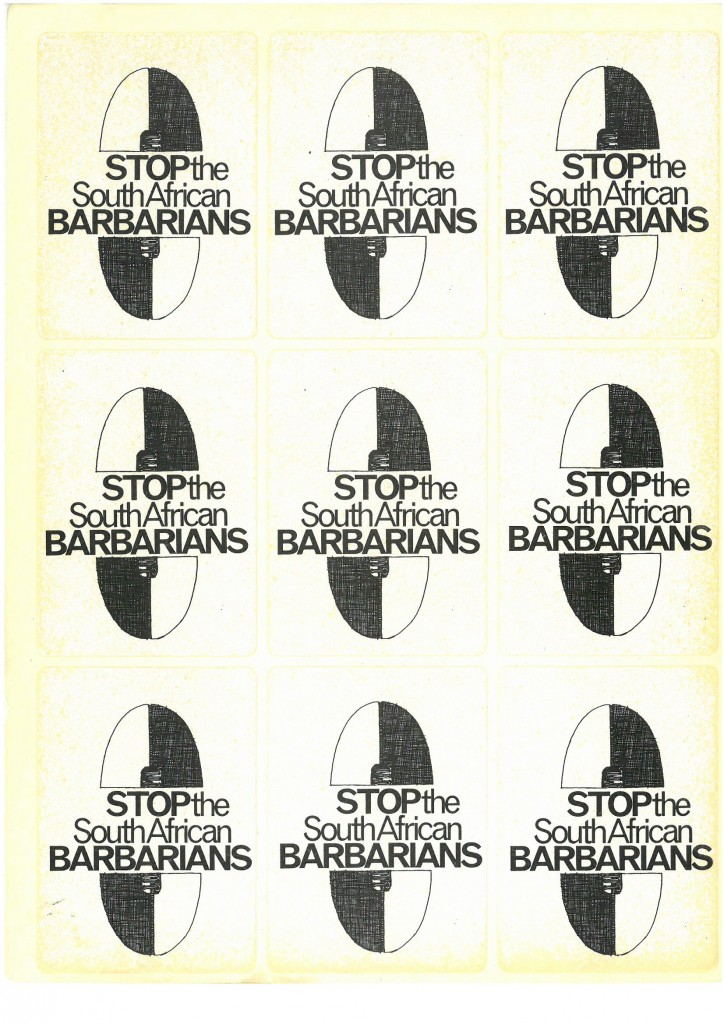 Sport is something that I have always enjoyed, but with a passing, casual interest. Some people would probably struggle to see the activities that I enjoy participating in, or watching, as sport, especially the manner in which I do them. To me being outside enjoying the scenery in a leisurely manner, in woods, on lochs, and up hills and mountains, is the closest I get to keeping active.
Sport is something that I have always enjoyed, but with a passing, casual interest. Some people would probably struggle to see the activities that I enjoy participating in, or watching, as sport, especially the manner in which I do them. To me being outside enjoying the scenery in a leisurely manner, in woods, on lochs, and up hills and mountains, is the closest I get to keeping active.
The intense competition and fandom that is often prevalent in sport is something that I have often struggled to comprehend. Coming from an English/Scottish background, and spending most of my adult life in Glasgow, the rivalries I have observed between nations and religions has often left me disenchanted. The excuse that certain behaviors, whether words, or actions, are acceptable when committed due to the passionate love of a sports team leave me cold.
However, over the past few years I have begun to understand the value of sport as an incredible social currency. A love of sport, whether playing or watching, can break down barriers put up by differences in gender, age, background, race, nationality and religion. It has an amazing power to unite and create opportunity. GCU hosting The Homeless World Cup earlier this year was a perfect example of the positive effect that sport can have on many people’s lives.
Sport proved an invaluable way of getting the world to sit up and take notice of the plight of Apartheid South Africa. Due to the refusal to ban racially segregated teams an international boycott of South African sport began which affected all levels, from local groups, to teams from educational institutions and people that participated at a professional level, both nationally and internationally.
It was in 1964 that the International Olympic Committee banned South Africa from competing in the Olympic Games due to its segregated teams and it was only in 1988 that they were allowed to begin participating again. This was an action carried out in support of the international boycott to great effect.
(Click images to enlarge)
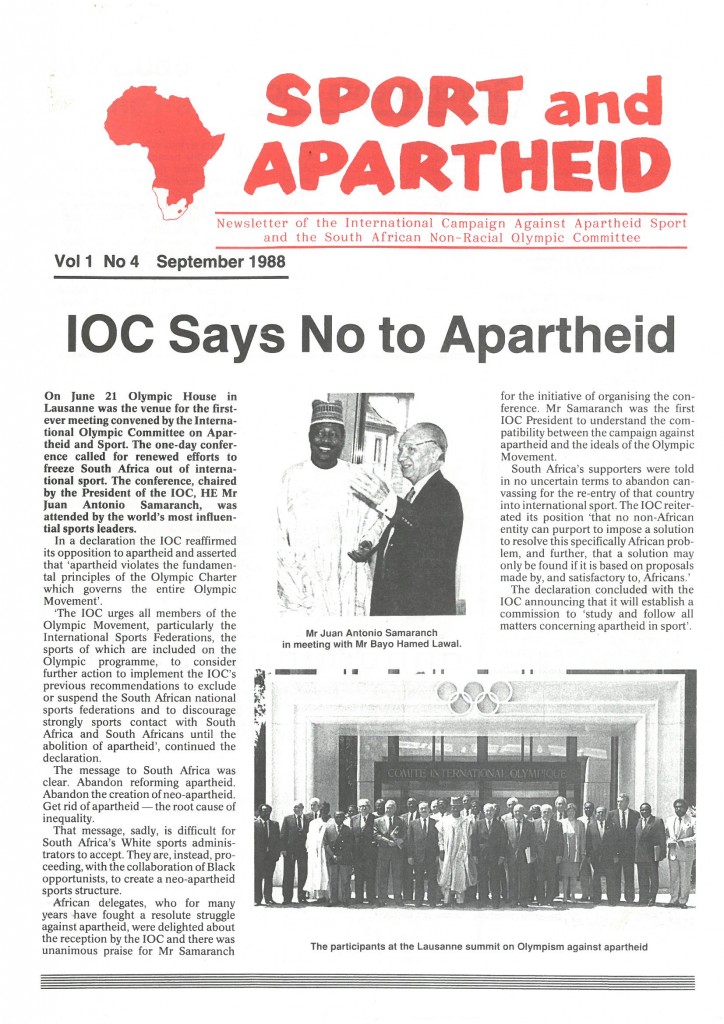
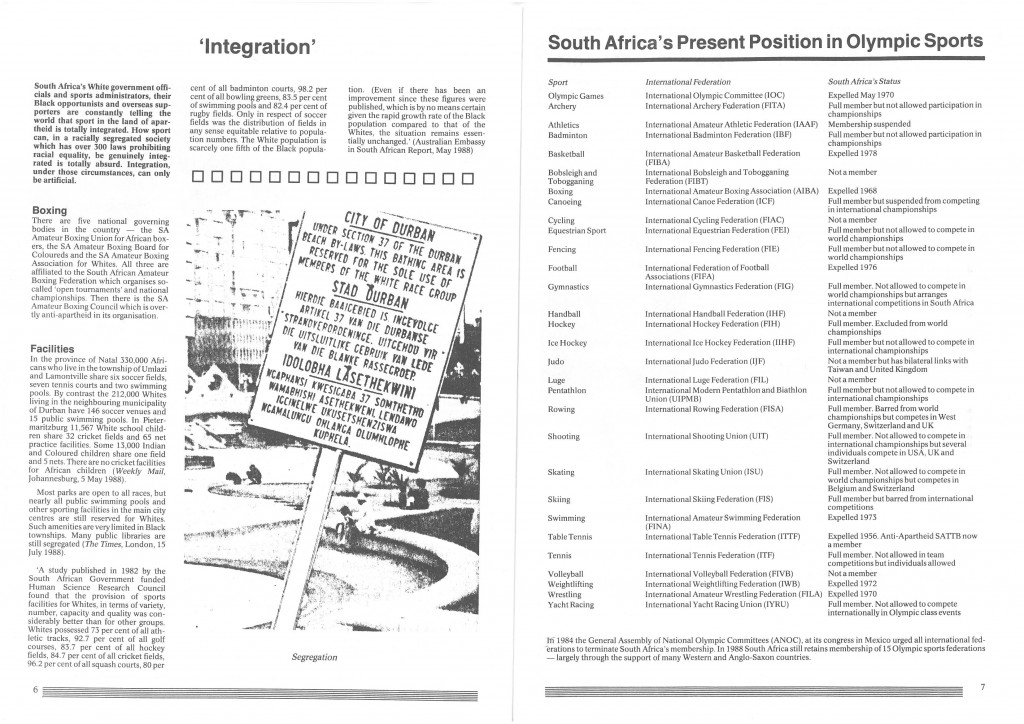 Another instance of great significance in sporting history happened here in Scotland, aided in part by the actions of the Scottish Anti-Apartheid Committee, the international boycott of the 1986 Commonwealth Games that was due to be held in Edinburgh. Of the 59 teams eligible to compete, 32 withdrew in protest against the Gleneagles Agreement not being enforced by the Conservative government of the time.
Another instance of great significance in sporting history happened here in Scotland, aided in part by the actions of the Scottish Anti-Apartheid Committee, the international boycott of the 1986 Commonwealth Games that was due to be held in Edinburgh. Of the 59 teams eligible to compete, 32 withdrew in protest against the Gleneagles Agreement not being enforced by the Conservative government of the time.
The Gleneagles Agreement was adopted by the Commonwealth Countries in 1977 in support of the international boycott, and encouraged participating countries to avoid taking part in sport where South Africa was represented, whether by individuals or teams.
The Anti-Apartheid Movements campaign material for the sports boycott was incredibly striking and the hard hitting images that were used, particularly in reference to the South African Barbarian’s rugby tour of the UK, helped increase support for the boycott. Below are some examples from the collection.
(Click images to enlarge)
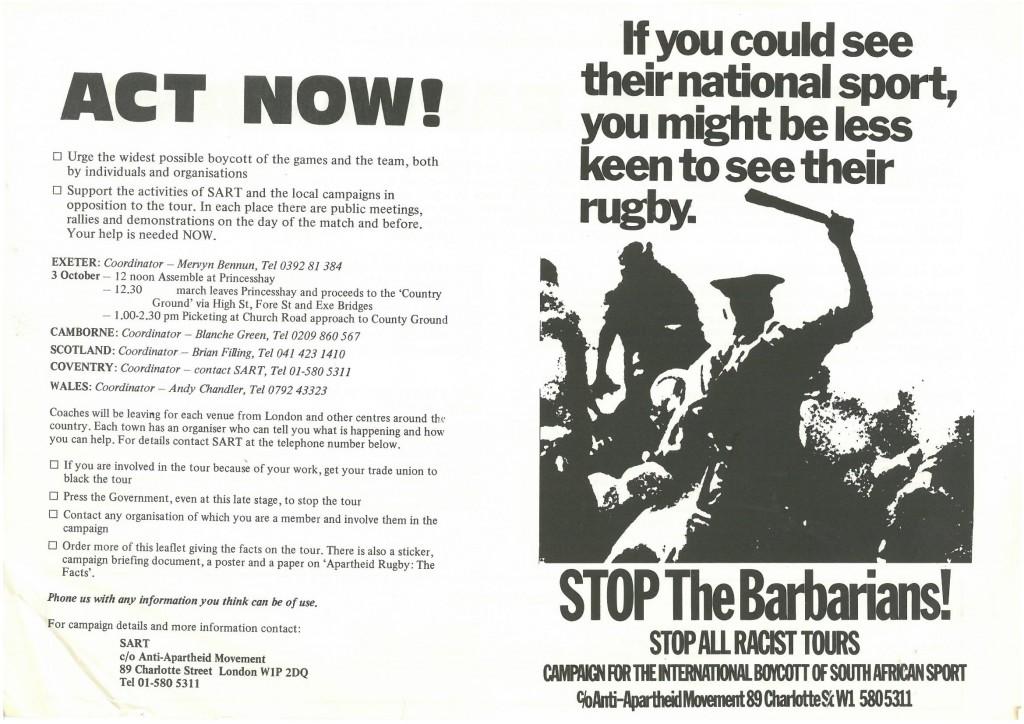
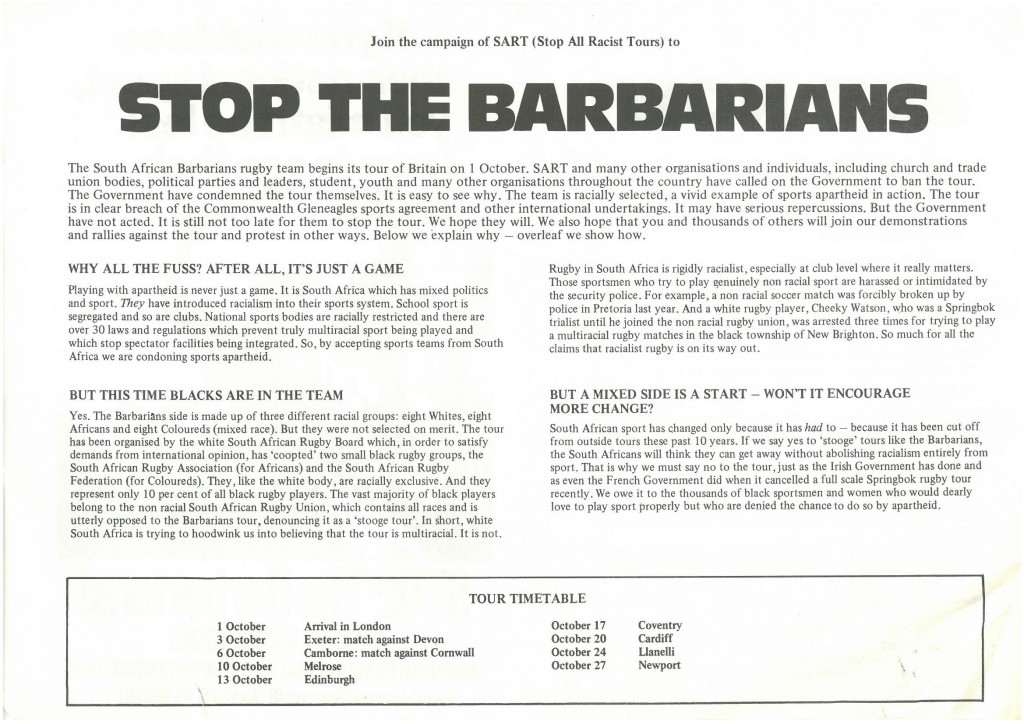 One of the most famous stories of the boycott affecting an individual was that of South African athlete Zola Budd. Budd managed to compete in the 1984 Olympic Games held in Los Angeles, four years before the ban on South African athletes competing was lifted. The ‘Daily Mail’ encouraged Budd to apply for British citizenship and aided her in the process of obtaining it in order to race within the UK and eventually qualify as part of the British Olympic team. Controversy dogged her career for a significant period of time following these actions.
One of the most famous stories of the boycott affecting an individual was that of South African athlete Zola Budd. Budd managed to compete in the 1984 Olympic Games held in Los Angeles, four years before the ban on South African athletes competing was lifted. The ‘Daily Mail’ encouraged Budd to apply for British citizenship and aided her in the process of obtaining it in order to race within the UK and eventually qualify as part of the British Olympic team. Controversy dogged her career for a significant period of time following these actions.
She was a brilliant athlete but like many others her career was compromised by a government which upheld an abhorrent regime that ended up negatively effecting many, even their preferred section of society.
(Click image to enlarge)
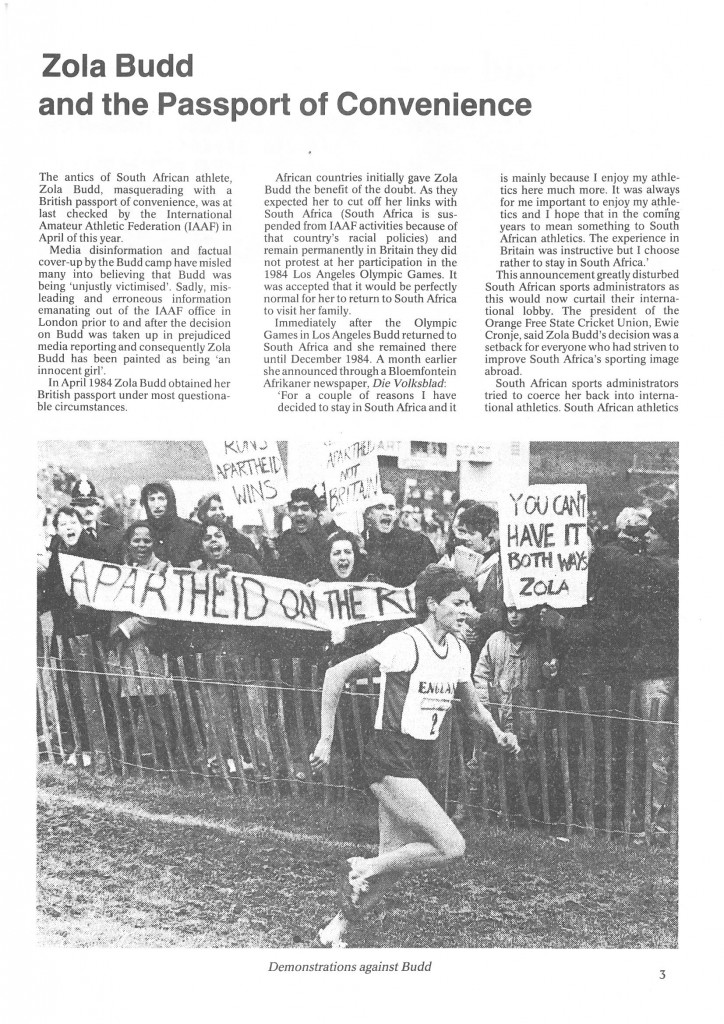 To end on a happier note, this years Olympics in Rio saw a moment of great triumph for one South African athlete. Wayde van Niekerk won gold at this year’s Games, breaking Michael Johnson’s 400m world record, and winning South Africa’s first gold. His mother Odessa Swarts had been a world class athlete but had been unable to compete internationally during her career due to South Africa’s apartheid regime. It was a moment of great significance, reported around the world, and one that was an eternal reminder of the positive impact of the sporting world internationally.
To end on a happier note, this years Olympics in Rio saw a moment of great triumph for one South African athlete. Wayde van Niekerk won gold at this year’s Games, breaking Michael Johnson’s 400m world record, and winning South Africa’s first gold. His mother Odessa Swarts had been a world class athlete but had been unable to compete internationally during her career due to South Africa’s apartheid regime. It was a moment of great significance, reported around the world, and one that was an eternal reminder of the positive impact of the sporting world internationally.
Julia Wylie, Project Archivist